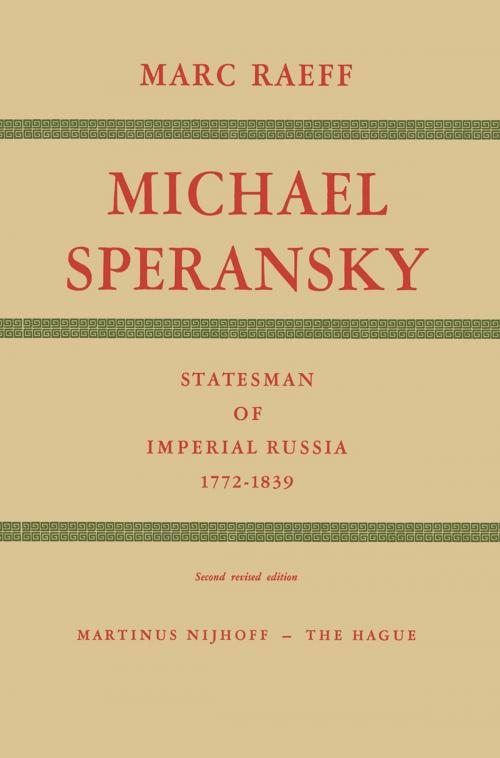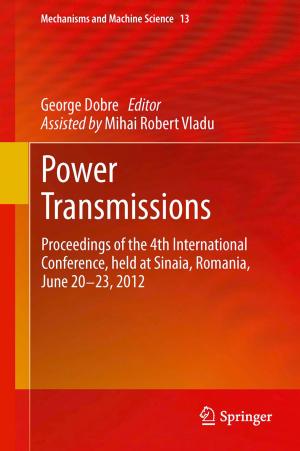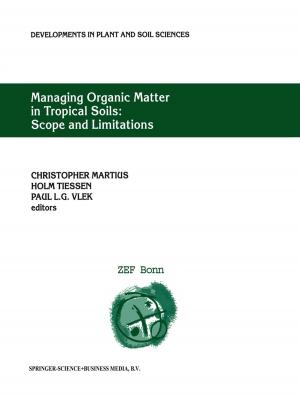Michael Speransky Statesman of Imperial Russia 1772–1839
Nonfiction, Social & Cultural Studies, Political Science, Politics, History & Theory, History| Author: | M. Raeff | ISBN: | 9789401174954 |
| Publisher: | Springer Netherlands | Publication: | December 6, 2012 |
| Imprint: | Springer | Language: | English |
| Author: | M. Raeff |
| ISBN: | 9789401174954 |
| Publisher: | Springer Netherlands |
| Publication: | December 6, 2012 |
| Imprint: | Springer |
| Language: | English |
"An autocracy tempered by assassination", clever foreigners used to say about the Russian empire in the 18th and 19th centuries. With this bon mot the average curiosity about the Tsars' government was satisfied and there seemed to be no need to look further into the matter. There was, on the surface of things, some justification for such a definition: many rulers had suffered violent death and little did the autocracy abate between 1725 and 1905. The impression created by travelers, by historians and journalists, as well as by Russia's own discontented intelligentsia was that nothing really ever changed in Russia, that the autocracy was the same in 1905 as it had been at the death of Peter the Great in 1725. Not that the outside world had remained ignorant of the efforts at reform, the changes, and the modernization wrought in Russia since the day Peter I had "cut a window into Europe. " But the prevailing opinion was that such changes as occurred were merely external and did not affect the fundamental structure of the government or of society.
"An autocracy tempered by assassination", clever foreigners used to say about the Russian empire in the 18th and 19th centuries. With this bon mot the average curiosity about the Tsars' government was satisfied and there seemed to be no need to look further into the matter. There was, on the surface of things, some justification for such a definition: many rulers had suffered violent death and little did the autocracy abate between 1725 and 1905. The impression created by travelers, by historians and journalists, as well as by Russia's own discontented intelligentsia was that nothing really ever changed in Russia, that the autocracy was the same in 1905 as it had been at the death of Peter the Great in 1725. Not that the outside world had remained ignorant of the efforts at reform, the changes, and the modernization wrought in Russia since the day Peter I had "cut a window into Europe. " But the prevailing opinion was that such changes as occurred were merely external and did not affect the fundamental structure of the government or of society.















